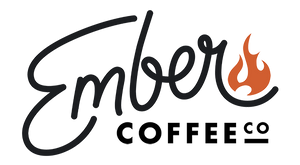Understanding Coffee Quality and Ethical Sourcing
When you're browsing the coffee aisle at your local grocery store, the term "organic" often jumps out as a marker of quality. But is organic coffee really better? The reality is more complex, especially when comparing mass-market coffee with specialty coffee from local roasters like Ember Coffee, a Minnesota-based coffee roaster committed to quality and ethical practices.
The Coffee Market: Quality Beyond the Label
Most coffee you see in stores, including those labeled as organic, falls into the category of mass-market or commodity coffee. While these coffees are often marketed as high-quality, they typically do not meet the same rigorous standards as specialty coffee. In fact, when coffee is evaluated using the Specialty Coffee Association (SCA) grading criteria, most mass-market brands score between 50 and 65. This range indicates average to below-average quality.
Specialty Coffee: A Higher Standard
In contrast, all of Ember Coffee’s offerings score 82 or higher on the SCA scale, making them specialty grade. Specialty coffee is characterized by superior flavor, aroma, and overall quality, achieved through meticulous attention to detail at every stage of production—from the farm to your cup. As a Central Minnesota coffee roaster, we take pride in offering a product that far surpasses what you'll find on typical store shelves.
Organic Certification: The Hidden Challenges
The idea of organic coffee is appealing, but the certification process presents significant challenges for small coffee producers. Take Ronaldo, for instance—a coffee farmer who owns a family plantation in Honduras. For years, Ronaldo struggled to make ends meet while trying to maintain his organic certification. The certification process required him to meet strict standards, but more than that, it involved paying for certification and dealing with middlemen who took a cut of his profits. This made it difficult for Ronaldo to keep his business afloat, despite his commitment to sustainable, organic farming practices.
Ethical Sourcing Over Organic Labels
Ronaldo’s fortunes began to change when he started working directly with trusted coffee importers who valued his commitment to organic farming but didn’t require the formal certification. By participating in direct trade rather than going through the complex and costly process of fair trade or organic certification, Ronaldo was able to bypass the middlemen, keeping more of the profits for his family and farm.
This shift allowed Ronaldo to continue using organic farming practices—avoiding pesticides and promoting sustainability—while thriving as a business owner. His experience is a testament to how direct trade can empower farmers to maintain their values without the financial burden of certification.
At Ember Coffee, we believe in supporting farmers like Ronaldo. We prioritize ethically sourced beans, ensuring that the farmers receive a livable wage and have the opportunity to thrive. This often means choosing to purchase coffee that is grown organically but lacks formal certification, so the farmers can retain a larger share of the profits. As a local coffee roaster in Big Lake, MN, we believe in supporting sustainable practices that truly benefit the communities we source from.
The Real Risks in Commodity Coffee
Concerns about pesticides, molds, and other health risks are more relevant when buying commodity-based coffee brands like Starbucks, Dunkin Donuts, Caribou, Kirkland Brand, and Folgers. These large-scale producers often prioritize quantity over quality, leading to lower SCA scores and potentially higher levels of contaminants. When you choose Twin Cities coffee culture and specialty roasters like Ember Coffee, you’re choosing not only better flavor but also a safer and more ethically produced product.
Conclusion: Choose Specialty, Choose Ethical
While organic certification has its place, it’s not the only indicator of quality or sustainability. By choosing specialty coffee from local roasters like Ember Coffee, you’re not only getting a superior product but also supporting ethical farming practices that truly benefit the growers. Farmers like Ronaldo show that it’s possible to stay true to sustainable practices without the heavy burden of certification, thanks to direct trade relationships that prioritize the well-being of the growers.
This understanding allows you to make more informed choices and enjoy a cup of coffee that’s both exceptional in quality and ethically sourced. When you're looking for a Minnesota-based coffee roaster that prioritizes quality and sustainability, look no further than Ember Coffee.
References
- Specialty Coffee Association, "Coffee Standards." https://sca.coffee/research/coffee-standards
- Perfect Daily Grind, "Why Is Organic Certification So Hard for Coffee Producers?" https://perfectdailygrind.com/2020/01/why-is-organic-certification-so-hard-for-coffee-producers/
- EFSA, "Pesticides in Food – Coffee." https://www.efsa.europa.eu/en/topics/topic/pesticides
- Fair Trade Foundation, "Why Fair Trade Coffee Matters." https://www.fairtrade.org.uk/what-is-fairtrade/the-impact-of-our-work/coffee/





